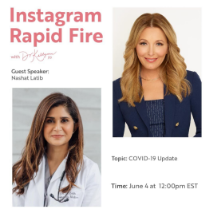Functional Medicine Insights on How to Increase AMH & FSH Levels
As a physician specializing in natural fertility, I am keenly aware of the vital role that Anti-Müllerian Hormone (AMH) and Follicle Stimulating Hormone (FSH) play in assessing a woman’s ovarian reserve and fertility potential. In this article, I will delve into what AMH and FSH levels signify, how they relate to fertility, and most importantly, how Functional Medicine offers natural strategies to enhance these levels and optimize fertility.
AMH: What are AMH Levels and Their Significance?
AMH, produced by the ovarian follicles, serves as a valuable biomarker for ovarian reserve—the number of eggs a woman has in her ovaries. It’s a crucial metric as we age and consider our reproductive health. Lower AMH levels generally indicate a decreased ovarian reserve, which might make conception more challenging, particularly as we approach our mid-30s and beyond.
The Link Between AMH Levels and Fertility
Understanding your AMH levels can provide insights into your fertility potential. While AMH levels naturally decline with age, they can also be influenced by various factors, including lifestyle, stress, and environmental exposures. As a Functional Medicine practitioner, I emphasize the importance of optimizing these factors to enhance fertility naturally.
Functional Medicine’s Approach to Enhancing AMH Levels
At Reimagined Health, my colleague Dr. Christina and I believe in a holistic approach to fertility. We understand that each individual is unique, and there’s no one-size-fits-all solution. Here are some strategies we incorporate into our practice to naturally enhance AMH levels and overall fertility.
FSH: What are FSH and Their Significance?
Follicle Stimulating Hormone (FSH) is a key player in the intricate dance of hormones that governs the female reproductive system. Produced by the pituitary gland, FSH stimulates the growth and development of ovarian follicles—tiny sacs within the ovaries that house immature eggs. As these follicles mature, they release estrogen, which is vital for the preparation of the uterine lining and the subsequent ovulation of a mature egg.
In men, FSH plays an essential role in supporting the production of sperm within the testes. It encourages the growth of seminiferous tubules and stimulates the Sertoli cells that nurture developing sperm cells.
Optimal FSH Levels for Men and Women
Optimal FSH levels are crucial for both female and male fertility. Low levels of FSH can indicate issues with egg or sperm production, while elevated levels might signal irregularities in the reproductive system. Note that these levels vary based on factors such as age, gender, and individual health circumstances. As a general guideline, here are the typical optimal FSH levels for men and women:
- In adult men, the optimal FSH level is generally between 1 to 10 IU/L. FSH plays a crucial role in supporting sperm production and maintaining male reproductive health.
Women:
- Follicular Phase (Early Menstrual Cycle): During the early days of the menstrual cycle, FSH levels typically range between 2 to 10 international units per liter (IU/L). This rise in FSH stimulates the growth of ovarian follicles.
- Ovulatory Phase (Mid-Cycle): FSH levels usually decrease during the ovulatory phase and can range from 2 to 8 IU/L.
- Luteal Phase (Late Menstrual Cycle): FSH levels remain relatively stable during the luteal phase and can range from 1 to 9 IU/L.
FSH levels naturally fluctuate throughout the menstrual cycle, and optimal levels can vary from person to person.
These ranges are general guidelines and may not apply to everyone. Additionally, optimal FSH levels can be influenced by various factors, including age, hormonal health, underlying medical conditions, and individual differences. When evaluating FSH levels, it’s crucial to consider the context of the individual’s overall health and reproductive goals.
If you would like our support to walk through the process step by step, we are here for you! Watch our free, on-demand masterclass here and take the action step to apply to work with us. We’ve helped countless couples like you succeed in optimizing their fertility, even when they are starting a family a little later in life.
The Functional Medicine Approach
Functional Medicine takes a holistic approach to health, aiming to identify and address the root causes of imbalances in the body. When it comes to enhancing AMH and FSH levels naturally, Functional Medicine offers several strategies that can promote overall reproductive health:
- Nutrition: A balanced diet rich in antioxidants, omega-3 fatty acids, and key nutrients like vitamin D, zinc, and folate can support egg quality and hormonal balance. Our tailored nutritional plans address individual needs, ensuring optimal reproductive health.
- Stress Management: Chronic stress can disrupt hormone production and impact fertility. Techniques such as mindfulness, yoga, and deep breathing can help manage stress, promoting hormonal harmony and reproductive wellness.
- Adequate Sleep: Prioritize quality sleep, as it plays a crucial role in hormone regulation. Aim for 7-9 hours of restful sleep each night to support hormonal health.
- Physical Activity: Regular, moderate exercise can enhance blood circulation and hormone balance. Our personalized exercise recommendations consider each client’s unique needs and energy levels.
- Toxin Reduction: Environmental toxins can negatively affect fertility. Minimize exposure to endocrine-disrupting chemicals found in certain plastics, personal care products, and processed foods. These substances can interfere with hormone production and function.
- Supplement Support: Targeted supplements, under the guidance of a healthcare professional, can aid in addressing specific nutrient deficiencies and promoting optimal hormone levels. Our professional line of supplements are pharmaceutical-grade quality aimed to promote overall health and fertility.
- Mind-Body Connection: Integrating mind-body practices like mindfulness and meditation can support hormonal balance and enhance fertility. In our Fertility Kickstart Program, couples get access to weekly calls with a mind-body expert to build this practice.
Enhancing Fertility Naturally
As Dr. Christina and I guide couples on their journey towards enhanced fertility, we emphasize that patience and consistency are key. Fertility is influenced by a multitude of factors, and changes take time to build the right formula. By embracing a comprehensive approach that considers lifestyle, nutrition, stress management, and more, couples can take proactive steps to optimize their fertility and increase their chances of conception naturally.
In conclusion, AMH and FSH levels offer insights into ovarian reserve and fertility potential. Functional Medicine, with its holistic approach, addresses the underlying factors that impact these levels and fertility. Through personalized strategies encompassing nutrition, stress management, sleep optimization, physical activity, toxin reduction, supplements, and mind-body practices, Dr. Christina and I at Reimagined Health empower couples to embark on a journey towards healthier fertility and the possibility of natural conception. We have couples in our program who struggle to conceive naturally and have seen an 80% success rate in helping them get pregnant with our 4R Fertility Formula™. Remember, your reproductive health is a partnership between your body and the nurturing choices you make each day, but we’re here to guide you through it!









